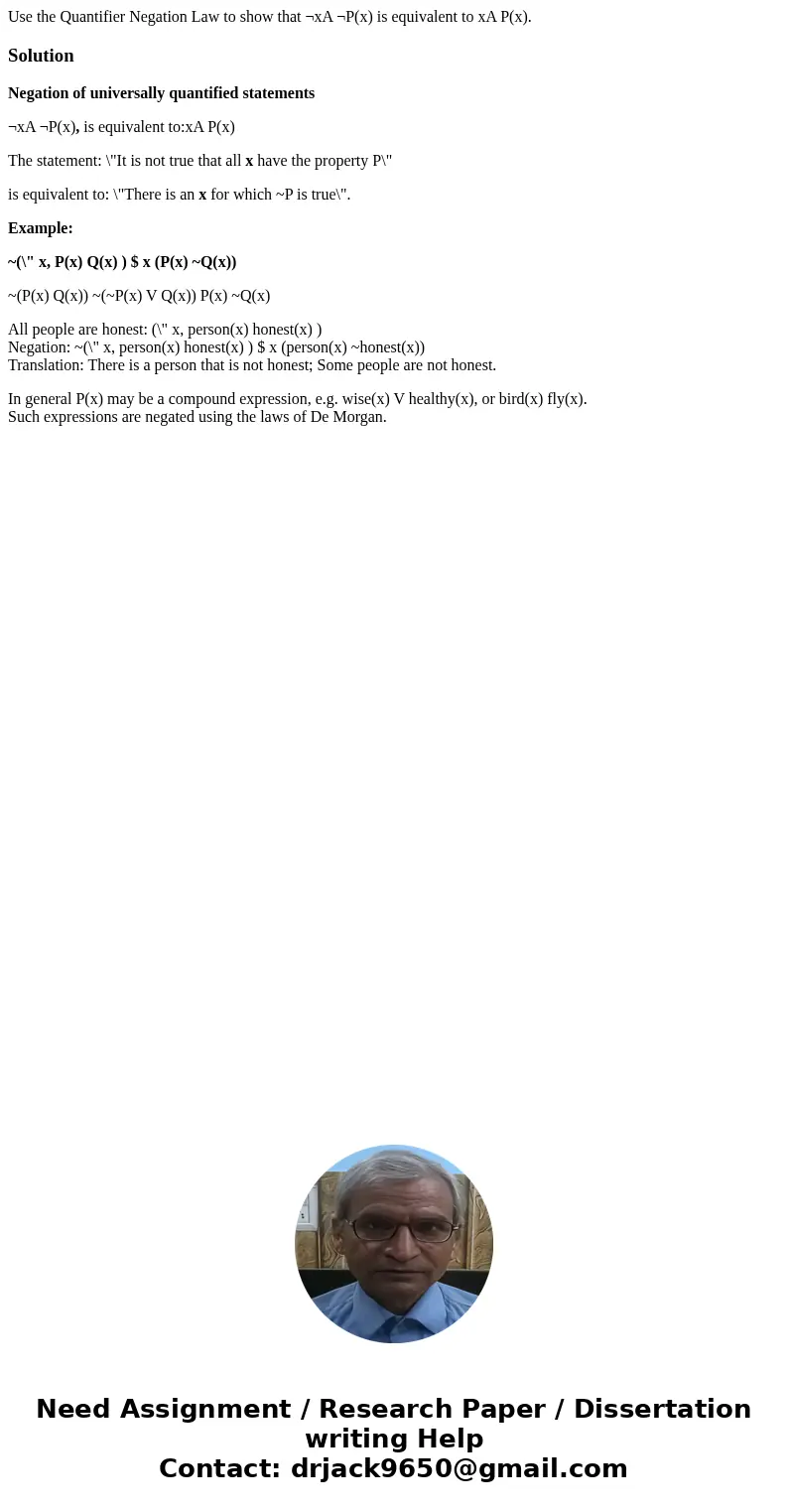Use the Quantifier Negation Law to show that xA Px is equiva
Use the Quantifier Negation Law to show that ¬xA ¬P(x) is equivalent to xA P(x).
Solution
Negation of universally quantified statements
¬xA ¬P(x), is equivalent to:xA P(x)
The statement: \"It is not true that all x have the property P\"
is equivalent to: \"There is an x for which ~P is true\".
Example:
~(\" x, P(x) Q(x) ) $ x (P(x) ~Q(x))
~(P(x) Q(x)) ~(~P(x) V Q(x)) P(x) ~Q(x)
All people are honest: (\" x, person(x) honest(x) )
Negation: ~(\" x, person(x) honest(x) ) $ x (person(x) ~honest(x))
Translation: There is a person that is not honest; Some people are not honest.
In general P(x) may be a compound expression, e.g. wise(x) V healthy(x), or bird(x) fly(x).
Such expressions are negated using the laws of De Morgan.

 Homework Sourse
Homework Sourse